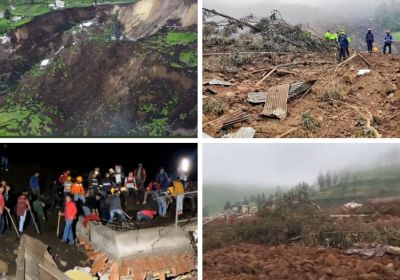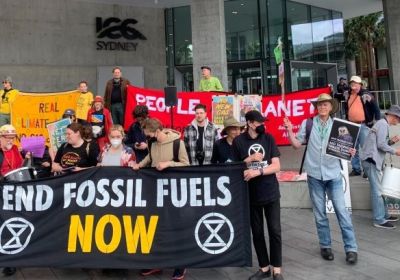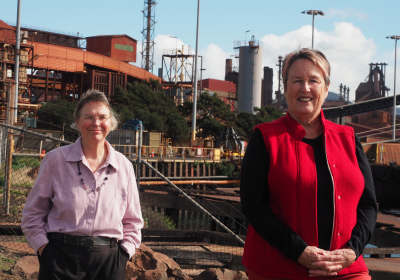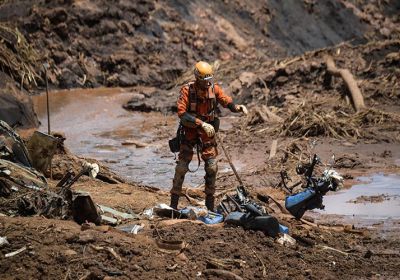
Despite the region’s steep topography and vulnerability to earthquakes, companies are seeking to exploit Ecuador’s Chimborazo province for large-scale copper and gold mining, reports Ana Zorita.

Despite the region’s steep topography and vulnerability to earthquakes, companies are seeking to exploit Ecuador’s Chimborazo province for large-scale copper and gold mining, reports Ana Zorita.

There is a disconnect of time scales between the relatively short-lived exploitative mining and Traditional Owners’ ancient connection to Country. Susan Norrie writes about her and artist colleagues' approach to a commission.

About 30 activists defied police intimidation to protest the International Mining and Resources Conference at the International Convention Centre in Darling Harbour. Kerry Smith reports.

Uncle Kevin Buzzacott, an elder of the Triabunna people in the Lake Eyre region of far northern South Australia, is campaigning for Santos and other gas companies to be prevented from destroying country. Renfrey Clarke reports.

Modern Australia remains profoundly shaped by the violent dispossession of Indigenous people. Denying this history serves a real and material purpose for very powerful interests, argues Sam Wainwright.

The world premiere of a 14-year struggle for jobs will be screened at this year's “virtual” Sydney Film Festival. Women of Steel, a finalist for an award, documents a hard-won campaign by women in the Illawarra to force BHP to hire them, write Pip Hinman and Peter Boyle.

The world’s biggest producer of iron ore, Vale, has again distanced itself from an ecological and workplace disaster of its own making, writes Pip Hinman.

It has been revealed that corporate mining giant BHP Billiton used a simple accounting trick to avoid paying iron ore royalties to the Western Australian government for over a decade. Last year, BHP took in a profit of $9.5 in iron ore from WA.